Celebrating Military Faculty and Staff at the UNH College of Professional Studies Online

The UNH College of Professional Studies Online is exclusively focused on supporting adult learners, with expertise in supporting military-connected students and spouses. As a Military Friendly® college, we offer many benefits, including tuition discounts and college credit for military training. However, truly supporting military students means creating an adaptable environment for learning, where the unique challenges of juggling military responsibilities are understood and appreciated by those involved in their education.
At UNH CPS Online, many of our faculty and staff members are servicemembers or veterans. With this shared experience, they provide an important support system for our military students and are invaluable members of our community.
Siddhartha Ricardo Sosa Rodriguez, a UNH CPS Online faculty member and servicemember, shared his thoughts on the importance of providing special support for military students:
“CPS Online programs support our military students by providing them with access to education, even when they are deployed. As long as a service member has internet access, they can continue their education. Having staff members who understand the challenges of military life is incredibly beneficial, as it makes the students feel understood and supported. It's not just about a specific program, but about the overall culture at CPS. As an alumna and now an instructor, I can tell you that the culture at CPS is what truly sets it apart. CPS is dedicated to serving those who serve.”
Meet Some UNH CPS Online Military and Veteran Faculty
Each team member’s story is different, and we wanted to give them the chance to share their experience and allow our students to get to know them a little better!
Caroline Groves
Senior Adjunct Faculty, Business and Technology Programs
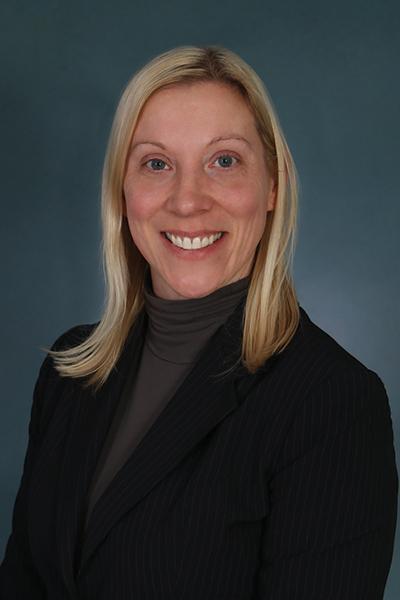
Caroline Groves joined the United States Air Force in August 2005. Her basic training was temporarily delayed assisting the Red Cross when Hurricane Katrina hit. After that memorable and emotional experience, she then went into personnel and was stationed in New Mexico. After two years of service, Caroline’s time in the military was cut short after she was injured during deployment training. She received an honorable discharge and her full MGIB in which she started graduate school early.
One of the most important skills Caroline learned during her time in the military was an astute attention to detail. In personnel, Caroline was responsible for creating the discharge certifications (DD-214) for servicemembers separating or retiring from the military. The certificates are a permanent record and it’s imperative that they have no mistakes. This was the start of Caroline’s career in Human Resources; her training taught her to pay attention to details and notice things others may overlook - a critical skill in the HR field.
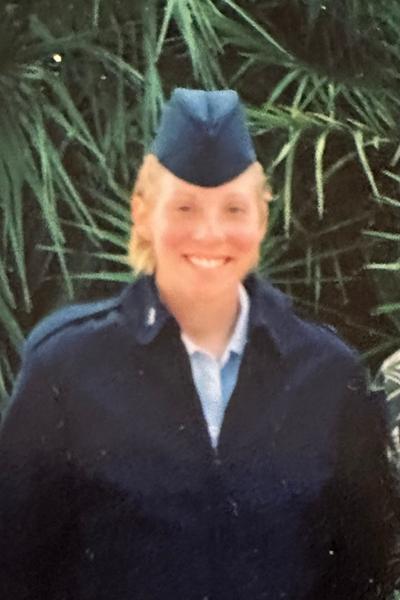
In addition to being a veteran faculty member, Caroline was also a military student at one point, and understands the unique challenges military students face while juggling service responsibilities and schoolwork. She started her MBA program while she was still active duty, and experienced firsthand the same challenges that many military students face.
“My advice for military students is keep going! I think military students struggle more with the work/life balance since the demands on their lifestyle are so high. And, after service, I know what it is like to work a full-time job while trying to go to school full-time and finish. It was hard. It took dedication, time management, and perseverance. There are a million reasons not to go to school and yet the end result is worth it!”
Today, Caroline still lives by the “service before self” motto that is emphasized in the military. She’s constantly challenging herself and striving to do better, and is a multitasking master - she works full-time, volunteers at her daughter’s school, and is the primary caregiver for her family.
Ron Danault
Program Director, Undergraduate Technology and Science Programs
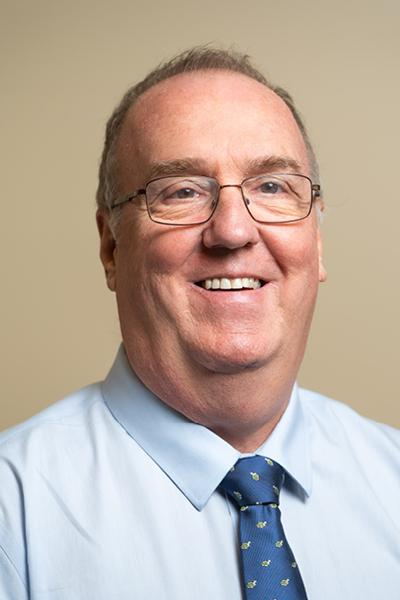
Ron Danault joined the Army National Guard in 1985 in the communications field. In 2005, he was deployed to assist with Hurricane Katrina, and then again in 2006 to help support the flooding victims in central New Hampshire. After completing his basic training at Fort Dix, NJ, and advanced individual training at the Signal Corps in Fort Gordon, GA, he went on to achieve the rank of Master Sergeant (E-8) as a non-commissioned officer and was the Communications Chief of the 2nd Battalion, 197 Field Artillery. Ron retired from the military in 2008 after 23 years of service.
“The biggest lesson I learned from my military career is the value of adaptability. In military life, circumstances can change rapidly and unpredictably, requiring individuals to adjust quickly to new roles, environments, and challenges. This adaptability is crucial not only in mission-critical situations but also in everyday tasks and interactions.”
Ron’s advice to military-connected students is to foster strong relationships, because they build a vital support network and can last for a lifetime beyond your time in the military. He also stressed the importance of maintaining mental and physical wellbeing, as it’s vital for performance and longevity in the military and beyond.
Karen White
Program Director, Project Management Graduate Programs
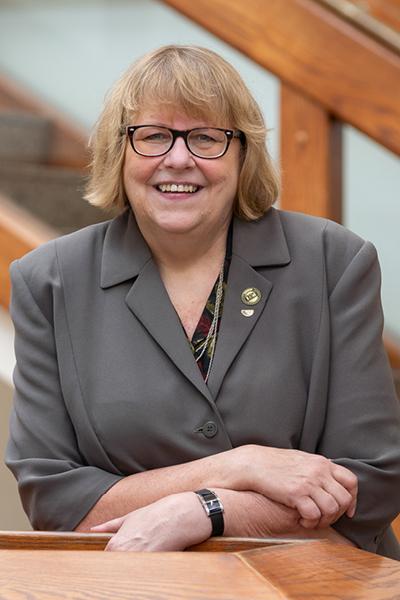
Karen White enlisted in 1974 as a member of the US Army Reserves and became a staff sergeant (E-6) five years later. After serving for 10 years, the demands of her civilian job started to interfere with her Reserve duties, so she made the difficult decision not to extend her contract. During her service, she received a number of medals and awards, the highlight of which was the Army Commendation Medal awarded to her in 1979 for her meritorious service, leadership, and the establishment of a Retirement Point Tracking system that was deployed across her Division.
“One of the most important lessons I learned during my time in the military was: be a leader, not a manager. Take care of your team and they will take care of you. Focus on how you can help them succeed in all their undertakings, while also keeping your eyes on the overall mission. Don’t be afraid of making decisions. Sometimes you will not be afforded the luxury of time to analyze a situation. You need to trust in yourself and in your team, and just go for it.”
For Karen, her time in the military crystallized who she was as a leader, whether in day-to-day operations or in a crisis. It taught her the importance of recognizing any potential barriers to success before starting any initiative, and having a plan in place to overcome those barriers – whether for her team or herself personally.
Like many of our students, Karen pursued an education while enlisted, achieving both her bachelor’s and master’s degree while also working full time on top of her military responsibilities. When asked what advice she has for our military students, she shared,
“Don’t be afraid to try. Ask for advice and assistance when you need it. It will be seen as a quest for more knowledge, not as a weakness. Practice perseverance: you can make things happen. And, be kind to yourself.”
Siddhartha Ricardo Sosa Rodriguez
Adjunct Faculty, Business
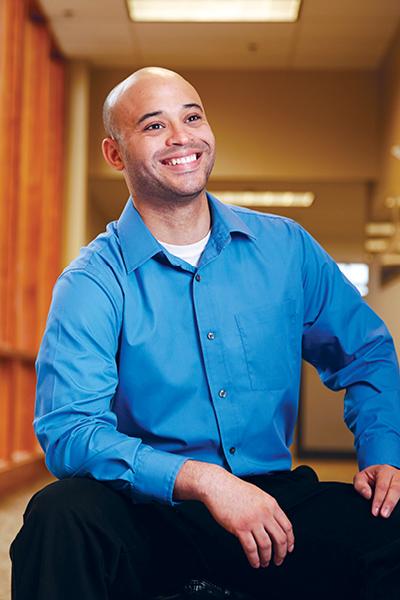
Siddhartha joined the military in 2005 as a member of the New Hampshire Air National Guard, and will reach 20 years of service in a few months. He initially served as a Security Forces member, but now works as a Religious Affairs Airman. He has been deployed overseas twice.
For Siddhartha, his time in the military has taught him to appreciate simple moments and inspired him to help others while seeing both the good and bad in the world.
“I am a product of my past actions and decisions, just like everyone else. It has inspired me to help others and has allowed me to see the different facets of love. The need for love is universal. We may speak different languages and be part of social constructs, but we are all striving to become the best versions of ourselves.”
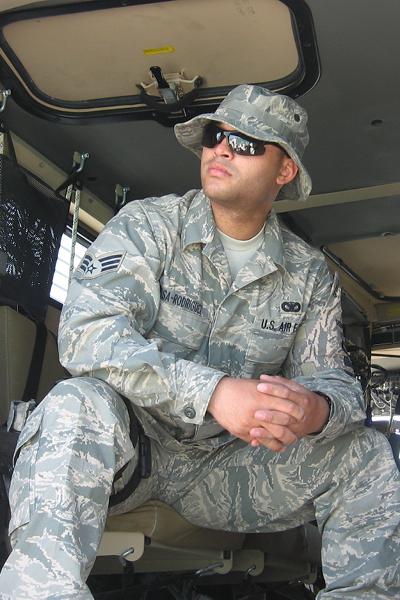
While pursuing a degree with the goal to acquire career advancement opportunities is important, Siddhartha also encourages students to pursue education for reasons beyond professional benefits.
“It's crucial to recognize that education also offers the opportunity to learn about oneself. As I often tell my students: the more you understand about yourself, the better you'll comprehend others; the better you understand others, the more effectively you'll communicate; and the better we are at that, the happier and more productive we'll be. This benefits not only ourselves, but also our families and communities.”